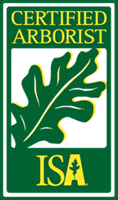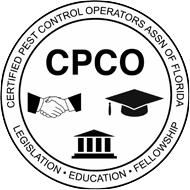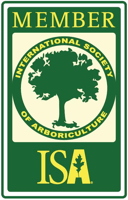Pest control for trees is vital to maintain their health and longevity. Finding natural pest control options is of grave importance to maintaining the health of your plants. Pests, whether insects or diseases, can compromise a tree’s structural integrity, leading to decline or even death. Controlling pests preserves the aesthetics of landscapes and urban greenery while safeguarding ecosystems. It prevents the spread of diseases that could devastate entire tree populations, maintaining biodiversity. Effective pest management ensures trees can thrive, providing shade, oxygen, and habitat for various organisms.
Zimmerman Tree Service takes a deep dive into the subject of natural pest control here. Zimmerman is Palm Beach County’s leading team of arborists, and using that experience, we provide you with more information on the subject.
What Plant Is Natural Pest Control?
A key player in pest control, the neem tree, or azadirachta indica, stands out among pest control plants for its remarkable properties. This tree’s potency against pests lies in compounds like azadirachtin, which functions as a pest control agent that disrupts the life cycles of various insects. Its wide-ranging applications encompass agricultural pest control and safeguarding stored grains, making it a versatile tool in plant pest control.
The neem tree doesn’t limit its prowess to repelling insects. It also possesses fungicidal and bactericidal properties, expanding its role in comprehensive plant pest control strategies. Neem-based formulations have gained traction due to their eco-friendly nature, posing minimal risk to non-target organisms and the environment.
While neem stands as a formidable force in the natural control of pests, its application requires careful consideration. Dilution ratios and proper application methods are crucial to prevent unintended consequences for beneficial insects and the overall ecosystem.
Understanding the role of natural pest control in integrating sustainable practices fosters a balanced environment, promoting plant health and ecological harmony.
What Is a Natural Method of Pest Control?
Integrated pest management (IPM) is a comprehensive approach to control, emphasizing sustainable solutions and plant health. Within this framework, utilizing plants for pest control stands out as an effective strategy. Certain plant species emit compounds or scents that repel pests or attract beneficial insects, aiding in pest control for plants.
The concept of IPM is also known as companion planting. It involves strategically placing pest-repelling plants alongside vulnerable crops. For instance, marigolds emit a scent that deters many common garden pests while attracting insects like ladybugs, which feed on harmful insects.
Integrating natural pest control for plants can also involve fostering biodiversity. Creating a diverse ecosystem within and around cultivated areas supports a natural balance, reducing plants’ vulnerability to pest infestations. Beneficial insects, attracted by specific plants, naturally control pest populations without the need for chemical intervention. For example, ladybugs are often used against aphids in a biodiverse plant environment.
By incorporating natural pest control methods like companion planting and biodiversity enhancement, IPM minimizes the reliance on synthetic pesticides. This approach not only safeguards plant health but also preserves the environment and promotes sustainable agricultural practices.
What Are Examples of Natural Ways to Reduce Pests?
When it comes to natural pest control, leveraging plants for pest control stands as a notable strategy. Certain plants possess inherent properties that aid in pest plant control. For instance, marigolds emit compounds that repel pests, effectively contributing to pest control with plants. Introducing such companion plants strategically among vulnerable crops creates a natural barrier against infestations.
Employing cultural practices in pest plant control remains a cornerstone of pest control strategies. Crop rotation disrupts the life cycles of pests, impeding their ability to thrive in a consistent environment. This method, integrated with intercropping (growing two or more crops in the same field simultaneously), confuses pests by altering their expected environment and reducing their ability to target specific plants.
Utilizing physical barriers like row covers or nets can shield plants from direct pest intrusion. These barriers function as protective shields, preventing pests from accessing and damaging vulnerable plants.
By uniting these control methods, it’s possible to create a harmonious environment that mitigates pest pressures while fostering the health and vitality of cultivated plants.
Make Use of Professional Tree Services in Palm Beach
Zimmerman proudly provides tree service Palm Beach, FL, can trust. As such, we are deeply committed to fostering community trust. Our core mission revolves around assisting our neighbors in nurturing and safeguarding the well-being of their trees. From routine maintenance to specialized attention, our comprehensive suite of services ensures your trees receive the dedicated care they deserve.
With a team of seasoned professionals, we offer unmatched tree services tailored to the South Florida region. We understand the paramount importance of preserving your trees’ vitality and possess the knowledge and expertise necessary for the job.
Explore our extensive South Florida tree blog. It is a resource dedicated to South Florida tree services that offers valuable insights into subjects such as natural pest control and beyond. This platform allows us to share our wealth of knowledge with the community.
Reach out to us today and experience the expertise and distinction that define our esteemed tree services in Palm Beach.





